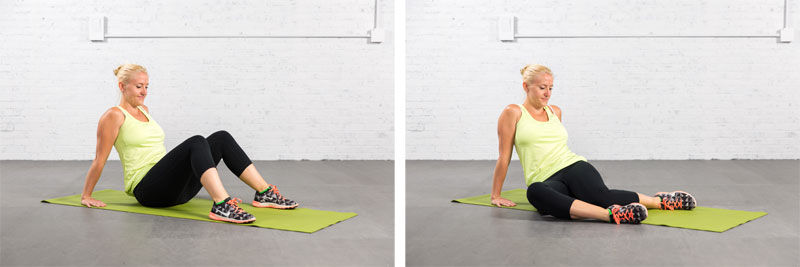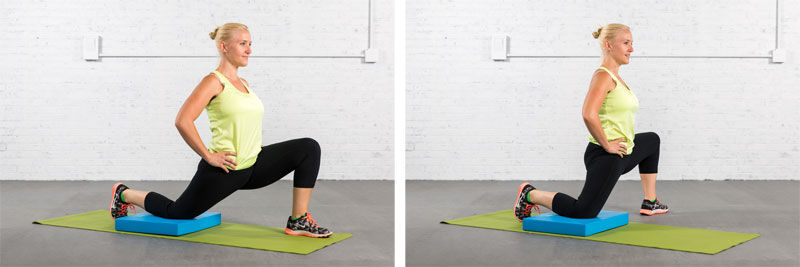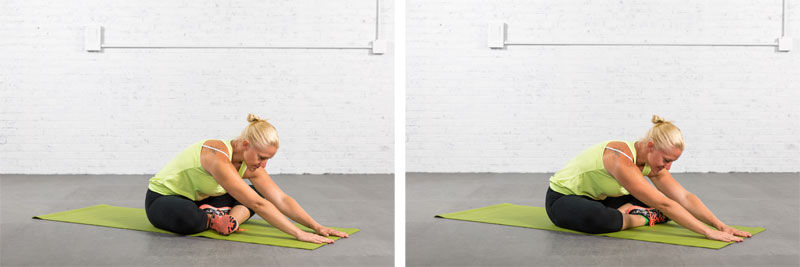Many people spend a considerable amount of time sitting down—at a desk, in the car and while watching television. As a result, they may experience tight hips, limited range of motion or chronic back pain. Performing hip openers can go a long way toward improving general mobility and alleviate discomfort.
When choosing hip stretches, it is important to understand that the body, and more specifically the hips, function in a three-dimensional plane, which means that mobility stretches should incorporate all three planes of motion to be most effective. The following multidimensional hip openers can be used as part of a warm-up or performed after bouts of sitting. As with any exercise, repetition and consistency are the keys to success.
Seated Internal Rotation

- Begin in a seated position with feet flat on the floor.
- Move to a modified hurdler/pigeon stretch, with the left knee pointing out from the hip at about a 45-degree angle.
- Roll to a seated position, keeping the feet flat on the floor and the knees wide. Sit as tall as possible and pull the hips toward the heels.
- Roll to the right side and assume a modified hurdler stretch, with the right knee pointing out from the hip at about a 45-degree angle.
- Move from side to side in a dynamic flow, holding each side for three to five seconds.
- Perform 10 to 15 repetitions
Half-kneeling Hip-flexor and Adductor Stretch

- Begin in a half-kneeling position on a cushioned mat, with the right foot forward.
- Tuck the pelvis and keep the spine in neutral alignment. Hold this hip-flexor stretch for five to 10 seconds.
- Move the right foot lateral to the body, keeping the knee aligned with the center toe. Sink the hips toward the knee. Hold this adductor stretch for five to 10 seconds.
- Perform 10 repetitions of each stretch.
*These two stretches can be performed in a standing lunge position if kneeling is uncomfortable.
Seated Glute Stretch

- Begin in a seated, cross-legged position, with the right foot tucked into the left thigh.
- Lean the torso forward over crossed legs. Hold for five to 10 seconds.
- Perform with the opposite foot tucked.
Incorporate these exercises in your routine to free your hips and low back. Focus on lengthening the breath and consciously relax. Moving and stretching in ways that create better range of motion can be an easy way to decrease pain and improve movement.




 by
by 












 by
by